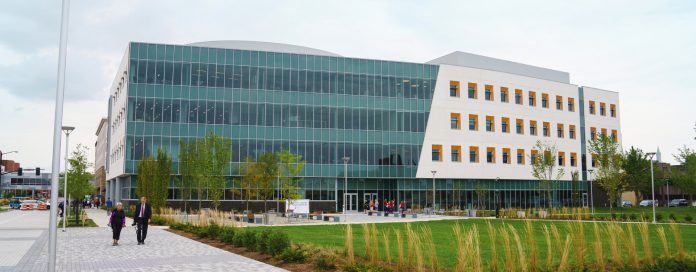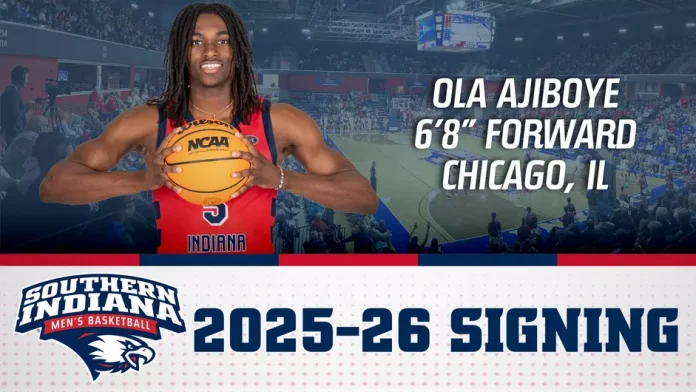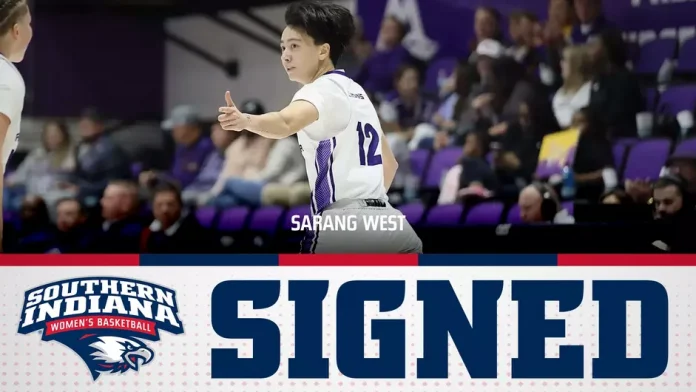HENDERSON POLICE DEPARTMENT Arrested Two Juveniles
HENDERSON POLICE DEPARTMENT
1990 Barret Court
Henderson, Kentucky 42420
270-831-1295
Henderson Police have arrested two juveniles while investigating a crash that involved a car hitting a house. At 2:40 am on June 10th, officers were in the 1400 block of Clay St. for a report of a suspicious vehicle. An officer spotted the car as it left the area at a high rate of speed. No officers had contact with the vehicle and lost sight of it as it left the area. A few minutes later, a 911 caller at 1 N Julia St reported an SUV had struck their house. Officers responded and determined it was the same SUV from the Clay St. call. There were no occupants in the SUV when officers arrived at the crash.
There were residents in the house, but no injuries were reported. Due to the damage, the residents had to leave the home until it could be deemed safe. Officers were able to get descriptions of the occupants and eventually found them in the Henderson Station Apartments. Two juveniles were taken into custody and charged with the following: Suspect #1 (Driver) 15 years old, KRS 508.060 Wanton Endangerment 1st Degree, KRS 189.290 Reckless Driving, KRS 186.410 (1) No Operator’s License, KRS 189.580 (1) (A) Leaving the Scene of an Accident, KRS 304.99-060 No Insurance, KRS 514.100 Unauthorized Use of a Motor Vehicle 1st Offense. Suspect #2 (Passenger) 13 years old KRS 508.060 Wanton Endangerment 1st Degree – 4 counts Presumption of Innocence Notice: The fact that a person has been arrested or charged with a crime is merely an accusation, and the defendant is presumed innocent
USI Softball alum Newman to play in Sweden
EVANSVILLE, Ind. – Former University of Southern Indiana Softball pitcher Josie Newman will be taking her talents to compete for the Karlskoga Bats of the Elite Softball Series in Sweden. Newman will be a player and help with some coaching for the team.
The club is in Karlskoga, Sweden, in the southern part of the country, and a couple of hours west of Stockholm. The league runs throughout the summer, featuring doubleheaders every weekend during August.
“Being able to extend my career and play the game I love for a little longer means so much to me,” Newman said. “Getting such an amazing opportunity as this one is something I am so grateful for, and I look forward to making the most of it.”
Newman added, “What excites me most about this opportunity is that I can continue and grow the game outside of the U.S. and experience a different culture while creating lifelong friendships and memories. This sport has given me so much in my life that I am forever grateful for, so I am excited to give back to it as much as possible.”
The opportunity came about via a connection with USI Softball Head Coach Sue Kunkle and longtime softball coach Bill Gilbert. Gilbert, who has been recruiting American players to help grow the game in Sweden for some time, helped Newman connect with Karlskoga’s head coach, Daniel Lindkvist, who offered Newman the opportunity.
“We are very excited for Josie to have been given this opportunity to continue playing and give back to the game of softball,” Kunkle said. “She will be able to use her knowledge and experiences to grow the game in a different part of the world.”
The right-hander concluded her USI career this past spring among the top five in the USI Softball record books in innings pitched (690.0), complete games (80), and wins (66). Newman finished just outside the top five with 18 career shutouts. Most notably, Newman landed second in USI history with 753 career strikeouts.
Newman began her USI career as a member of USI’s 2022 NCAA II Midwest Regional Championship team, earning All-GLVC Second-Team and D2CCA All-Region Second-Team accolades as a freshman. During the Screaming Eagles’ first three years at the NCAA Division I level (2023-present), Newman went on to be named All-OVC First Team twice, including OVC Pitcher of the Year and NFCA All-Midwest Region Third Team in 2024. The former Eagles hurler was also named pitcher of the week between the GLVC and OVC seven times while in a USI uniform.
“I am really happy Josie can continue her career after USI!” Kunkle said. “We wish her the best and nothing but success for her.”
EVSC Breaks Ground on Innovation Center for Science and Health in Partnership with UE
New Facility Will House Academy of Science & Medicine and Strengthen College-Career Pipelines
EVANSVILLE, IND. (06/09/2025) The Evansville Vanderburgh School Corporation (EVSC) held a ceremonial groundbreaking Monday for the new Innovation Center for Science and Health, a dynamic facility that will expand learning opportunities for the EVSC’s Academy of Science & Medicine (ASM). The building will be located at the site of the former Welborn Clinic at 421 Chestnut Street in downtown Evansville.
In a collaboration with the University of Evansville (UE), the Innovation Center will serve as a hub for students, educators, and healthcare professionals uniting high school and college-level learning under one roof. As a key partner in the project, UE will maintain a small but meaningful presence in the facility, deepening its role in preparing future healthcare leaders and creating direct college-career pathways for ASM students.
“This facility is more than bricks and mortar, it represents a shared vision for the future of healthcare education in our region,” said Christopher Pietruszkiewicz, President of the University of Evansville. “UE is proud to partner in this innovative endeavor, which will create early and meaningful connections between high school students and our faculty while preparing the next generation of compassionate, skilled healthcare professionals. Our commitment is to empower students to make a difference, building a more vibrant community and a brighter future for all.”
Founded in 2015 with just 17 students and 4 teachers, the Academy of Science & Medicine has grown exponentially to now serve 250 students supported by 16 educators. With fields of study ranging from nursing and mental health to occupational therapy, biomedical research, and medical school preparation, ASM has become a regional leader in healthcare education at the high school level.
The downtown location, adjacent to the Stone Family Center for Health Sciences, offers students access to real-world medical environments and academic collaboration with UE and other local universities, including the University of Southern Indiana and Indiana University. The design of the Innovation Center encourages cross-disciplinary learning and will support shared labs, clinical simulation areas, common areas and flexible instructional spaces.
EVSC leaders emphasized the broader community impact of the project.
“This is a transformational step forward not only for EVSC but for our entire region,” said Dr. David Smith, EVSC Superintendent. “We are grateful for partners like the University of Evansville who understand the value of early engagement and are helping us build the healthcare workforce of the future.”
Dr. Darla Hoover, who will succeed Dr. Smith as EVSC Superintendent on July 1, echoed the sentiment:
“This facility embodies the innovative spirit that defines our community,” said Dr. Hoover. “It will open new doors for students, strengthen our partnerships with higher education, and ensure that Evansville continues to lead in preparing students for careers in healthcare and beyond.”
In addition to academic programming, ASM students have already secured millions in scholarships and are making an impact locally, 75 percent of ASM graduates currently in the workforce have returned to serve the Evansville area, and 88 percent remain in Indiana.
Construction is set to begin immediately, with the facility expected to open in 2026.
USI signs Ajiboye for 2025-26
EVANSVILLE, Ind. – University of Southern Indiana Men’s Basketball announced the signing of forward Ola Ajiboye for the 2025-26 season.
At 6-foot-8, Ola provides the kind of hard-playing approach that we expects to see at USI,” said USI Head Coach Stan Gouard. “He brings a high-level work ethic and competitive edge from his time at Tennessee Tech (University), Valparaiso (University), and Central Michigan (University).
“Ola is versatile, tough, and fits perfectly with our culture and style of play,” continued Gouard. “We believe his length, athleticism, and toughness will make an immediate impact and help elevate our program. Ola’s motor is always running and will bring a great physical presence to our roster.”
Ajiboye is transferring to USI after spending last year with Tennessee Tech. He appeared in 32 games for the Golden Eagles in 2024-25, averaging 4.3 points, 3.4 rebounds, and 1.3 assists per game.
The 6-foot-8 forward posted a season-high 13 points versus Southeast Missouri State University and grabbed a season-best nine rebounds three times in 2024-25.
Prior to playing for TTU, Ajiboye spent a year at Valparaiso and Central Michigan. He competed in 31 of Valpo’s 32 contests during 2023-24, averaging 3.7 points, 3.4 rebounds, 0.6 blocks, and 0.5 steals per game.
As a freshman in 2022-23, Ajiboye played in 30 of CMU’s 31 games, making 14 starts, while averaging 3.0 points, 3.4 rebounds, 0.8 blocks, and 0.7 steals per game.
The Chicago, Illinois, native lettered for and attended Steuben High School (Chicago, Illinois), Evanston High School (Evanston, Illinois), and then Bosco Institute (Crown Point, Indiana) during his prep career.
The USI Screaming Eagles are a member of the Ohio Valley Conference and will be NCAA Tournament eligible in 2025-26 following the completion of the accelerated transition from Division II. USI has reached the OVC Championship in two of the first three seasons of Division I action.
BOARD OF PARK COMMISSIONERS SPECIAL MEETING
BOARD OF PARK COMMISSIONERS
SPECIAL MEETING
ROOM 301, CIVIC CENTER COMPLEX
WEDNESDAY JUNE 11, 2025
NOON
AGENDA
1. CALL TO ORDER
2. MEETING MEMORANDUM
N/A
3. CONSENT AGENDA
N/A
5. NEW BUSINESS
a. Request Re: Award and Execute Agreement for Garvin Park Activity Zone. -Crook
b. Request Re: Approve and Execute Agreement for Tepe Splash Pad Sitework and
Installation. -Crook
c. Request Re: Any Other Business the Board Wishes to Consider and Public Comment.
6. REPORTS
N/A
7. ACCEPTANCE OF PAYROLL AND VENDOR CLAIMS
8. ADJOURN
WORLD BALLET COMPANY RETURNS TO EVANSVILLE WITH SWAN LAKE PERFORMANCE
Tickets are available at Ticketmaster.com or the Old National Events Plaza Box Office.
JUNE 10 2025
Evansville, IN – June 9, 2025 – The World Ballet Company and Old National Events Plaza are pleased to announce Swan Lake is coming to the Aiken Theatre on April 16th, 2026, for one night only. This must-see production of Swan Lake is choreographed by Nadezhda Kalinina, who has lovingly retouched the oldest Marius Petipa’s version of the ballet, considered to be the foundation of the classic iconic version.
World Ballet Company’s Swan Lake is a breathtaking production featuring 50 professional dancers, over 150 hand-crafted costumes, and Tchaikovsky’s unforgettable score. From moonlit lakes to glittering palace halls, this renowned ballet captures the power of love, the pull of destiny, and the beauty of classical dance in its most captivating form.
According to audience surveys, more than 60 percent of the World Ballet Company audiences experience ballet for the first time with these productions, which is crucial to the company’s mission.
What: World Ballet Company: Swan Lake
When: Thursday, April 16th, 2026 at 7 pm
Where: Old National Events Plaza | 715 Locust Street | Evansville, IN 47708
Tickets: Tickets start at $41.00 plus applicable fees and tax
Tickets are available at Ticketmaster.com or the Old National Events Plaza Box Office.
About World Ballet Company
The World Ballet Company is driven by the belief that ballet is for everyone. Based in Los Angeles, and led by Sasha Gorskaya and Gulya Hartwick, World Ballet Company expands audiences for ballet and creates a new structure for world-class ballet productions. With no corporate or donor backing, it leverages decades of combined entertainment expertise to create, produce, and tour original productions that appeal to newcomers and seasoned ballet goers alike. By presenting in cities with less access to ballet, the company introduces the art form to new audiences while offering established ballet fans an annual occasion to look forward to. The company is composed of renowned professional dancers representing over ten countries. The family-friendly productions feature timeless scores, rich storytelling, vivid hand-painted sets, and stunning hand-crafted costumes. To date, World Ballet Company has travelled to more than 280 cities reaching an audience of more than 500,000, many of whom are first-time attendees of a ballet.
About Old National Events Plaza
Old National Events Plaza, managed by ASM Global, is Evansville, Indiana’s premier convention center and largest live entertainment theatre. Housing a spacious 2,500-seat theatre, 38,000 square- feet of column free exhibit space, a beautiful 14,000 square-foot ballroom, and 12,00 square feet of meeting space, Old National Events Plaza hosts a variety of events. The venue offers easy scheduling, one-stop-shop services, and in-house catering and audio-visual services. For more information and a complete schedule of events, please visit www.oldnationaleventsplaza.com.
About ASM Global
ASM Global is the world’s leading producer of entertainment experiences. It is the global leader in venue and event strategy and management – delivering locally tailored solutions and cutting-edge technologies to achieve maximum results for venue owners. The company’s elite venue network spans five continents, with a portfolio of more than 325 of the world’s most prestigious arenas, stadiums, convention and exhibition centers, and performing arts venues. For more information, please visit www.asmglobal.com.
Nick Wallace (he/him/his)
General Manager
Screaming Eagles add transfer guard West ahead of 2025-26
EVANSVILLE, Ind. – University of Southern Indiana Women’s Basketball has signed senior guard Sarang West, who transfers to USI ahead of 2025-26 from the University of North Alabama.
The 5’8″ guard made six starts in 26 games played last season for North Alabama, averaging 2.7 points per game. West shot just over 30 percent overall from the floor and nearly 30 percent from long range. West totaled 21 rebounds, 18 assists, and four steals in 2024-25. The guard had a pair of career-high games with 11 points last season.
“We are extremely excited to have Sarang join our team and USI family,” USI Women’s Basketball Head Coach Rick Stein said. “Sarang brings high-level colleg
CenterPoint Energy and Nextech host Catapult student visit to explore cybersecurity and energy careers
High school students to gain hands-on experience and real-world insight into technical careers at CenterPoint’s Bergdolt Training Facility
EVANSVILLE, Ind. — June 9, 2025 — As part of Nextech’s Catapult summer internship program, CenterPoint Energy will welcome a group of high school students to its Bergdolt Training Facility on June 10, 2025, for a hands-on learning experience focused on careers in the energy industry.
Catapult connects students to real-world learning in tech through immersive field visits, skills training and mentorship. The visit to CenterPoint offers a rare look at how careers in the utility sector are evolving in the digital age.
This collaboration reflects Nextech’s commitment to expanding access to computer science and CenterPoint Energy’s investment in STEM education and workforce development.
| What: | Nextech Catapult Industry Visit: CenterPoint Energy Experience
High school students participating in Nextech’s Catapult internship will take part in hands-on activities, meet CenterPoint employees and explore energy industry career paths. |
| Where: | CenterPoint Energy – Bergdolt Training Facility
2601 Bergdolt Road, Evansville, IN 47711 |
| When: | June 10 | 10 a.m. |
| Who: | Representatives from Nextech and CenterPoint Energy. |
| Visual: |
|











